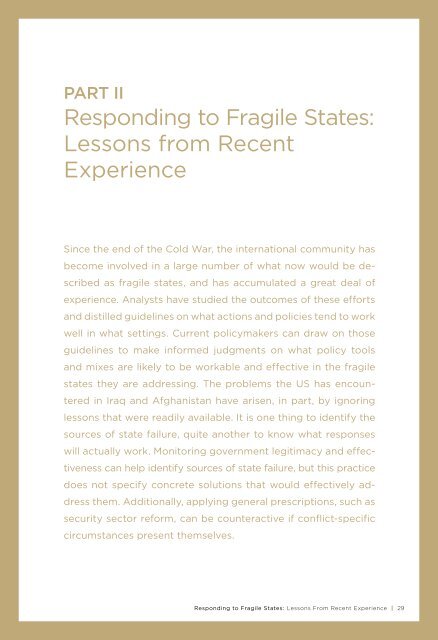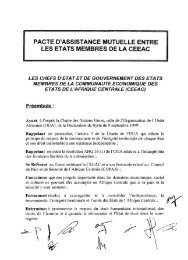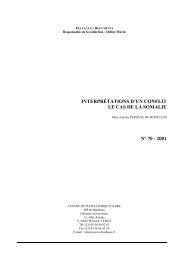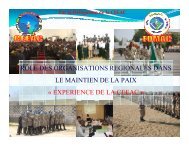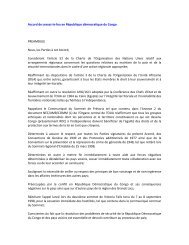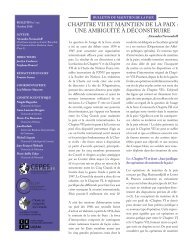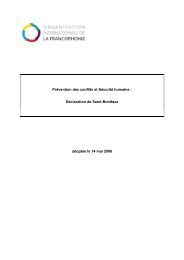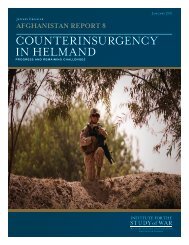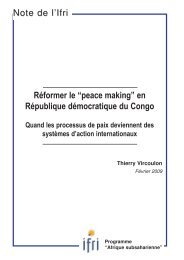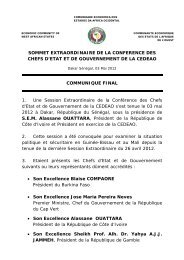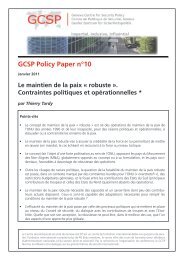engaging fragile states - Woodrow Wilson International Center for ...
engaging fragile states - Woodrow Wilson International Center for ...
engaging fragile states - Woodrow Wilson International Center for ...
Create successful ePaper yourself
Turn your PDF publications into a flip-book with our unique Google optimized e-Paper software.
Part II<br />
Responding to Fragile States:<br />
Lessons from Recent<br />
Experience<br />
Since the end of the Cold War, the international community has<br />
become involved in a large number of what now would be described<br />
as <strong>fragile</strong> <strong>states</strong>, and has accumulated a great deal of<br />
experience. Analysts have studied the outcomes of these ef<strong>for</strong>ts<br />
and distilled guidelines on what actions and policies tend to work<br />
well in what settings. Current policymakers can draw on those<br />
guidelines to make in<strong>for</strong>med judgments on what policy tools<br />
and mixes are likely to be workable and effective in the <strong>fragile</strong><br />
<strong>states</strong> they are addressing. The problems the US has encountered<br />
in Iraq and Afghanistan have arisen, in part, by ignoring<br />
lessons that were readily available. It is one thing to identify the<br />
sources of state failure, quite another to know what responses<br />
will actually work. Monitoring government legitimacy and effectiveness<br />
can help identify sources of state failure, but this practice<br />
does not specify concrete solutions that would effectively address<br />
them. Additionally, applying general prescriptions, such as<br />
security sector re<strong>for</strong>m, can be counteractive if conflict-specific<br />
circumstances present themselves.<br />
Responding to Fragile States: Lessons From Recent Experience | 29


